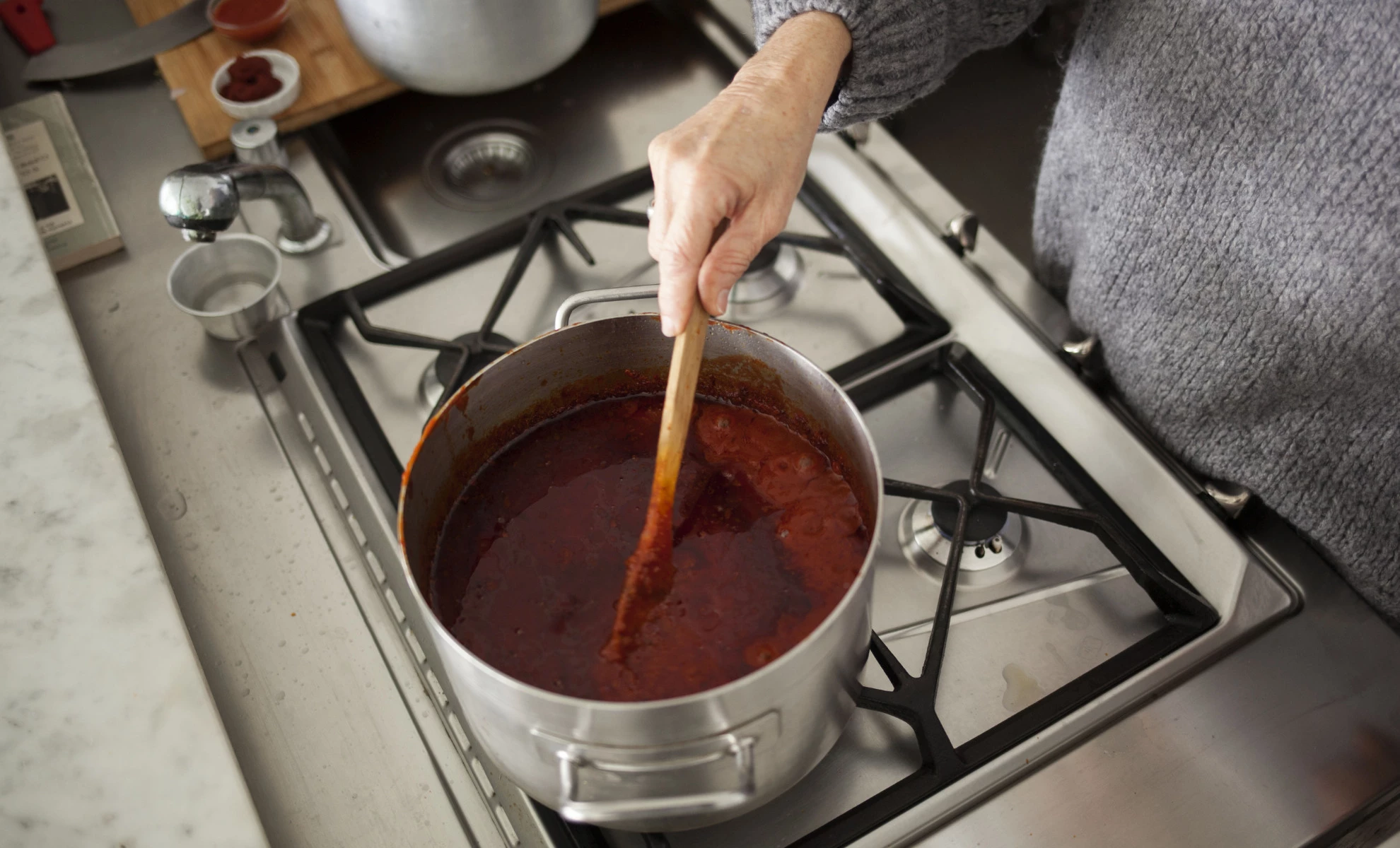Cuisine means many things: tradition, evolution, but also diversity of points of view. Even about the “classic” recipes, those defining the identity of a place and living in everyone's memory. No doubt the Neapolitan ragù is one of these.
The “dark rosewood” color shows a well done ragù | Ph. Machi di Pace
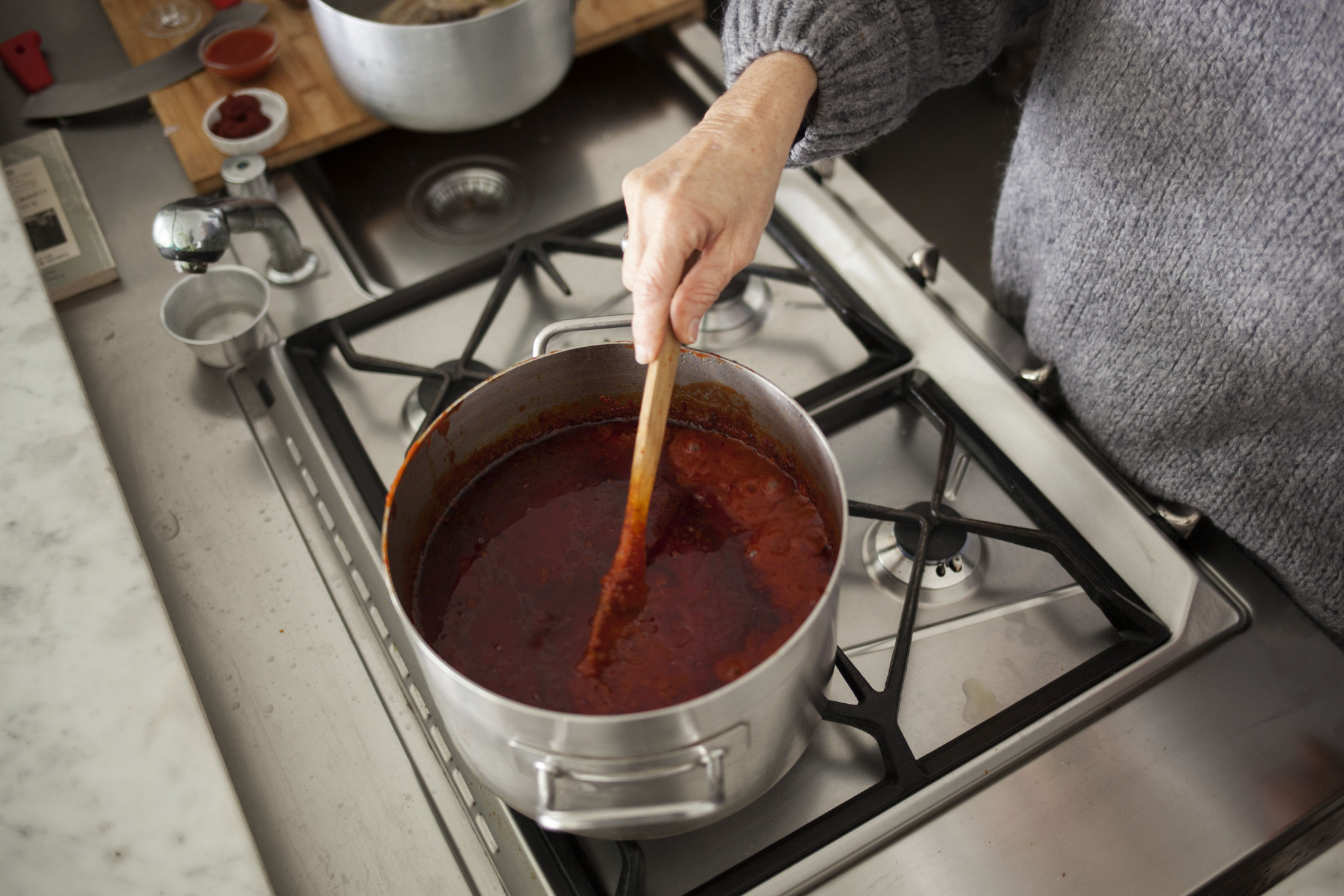
It is a dish for the soul, before than for the taste. Every Neapolitan, whether from the city or the province, can tell you about those Sunday mornings, as a child, when he woke up with the smell of coffee mixed with that of the ragù that peppiava in the pot. Meat and tomato on an abundant bed of extra virgin olive oil and finely chopped onion, ragù is a long and complex preparation, which requires “Prophet Job's patience”, as the playwright Eduardo De Filippo said. Once, lard was used. Now times have changed, tastes have become more refined and a lighter consistency sauce is preferred.
The ingredients of the ragù | Ph. Machi di Pace
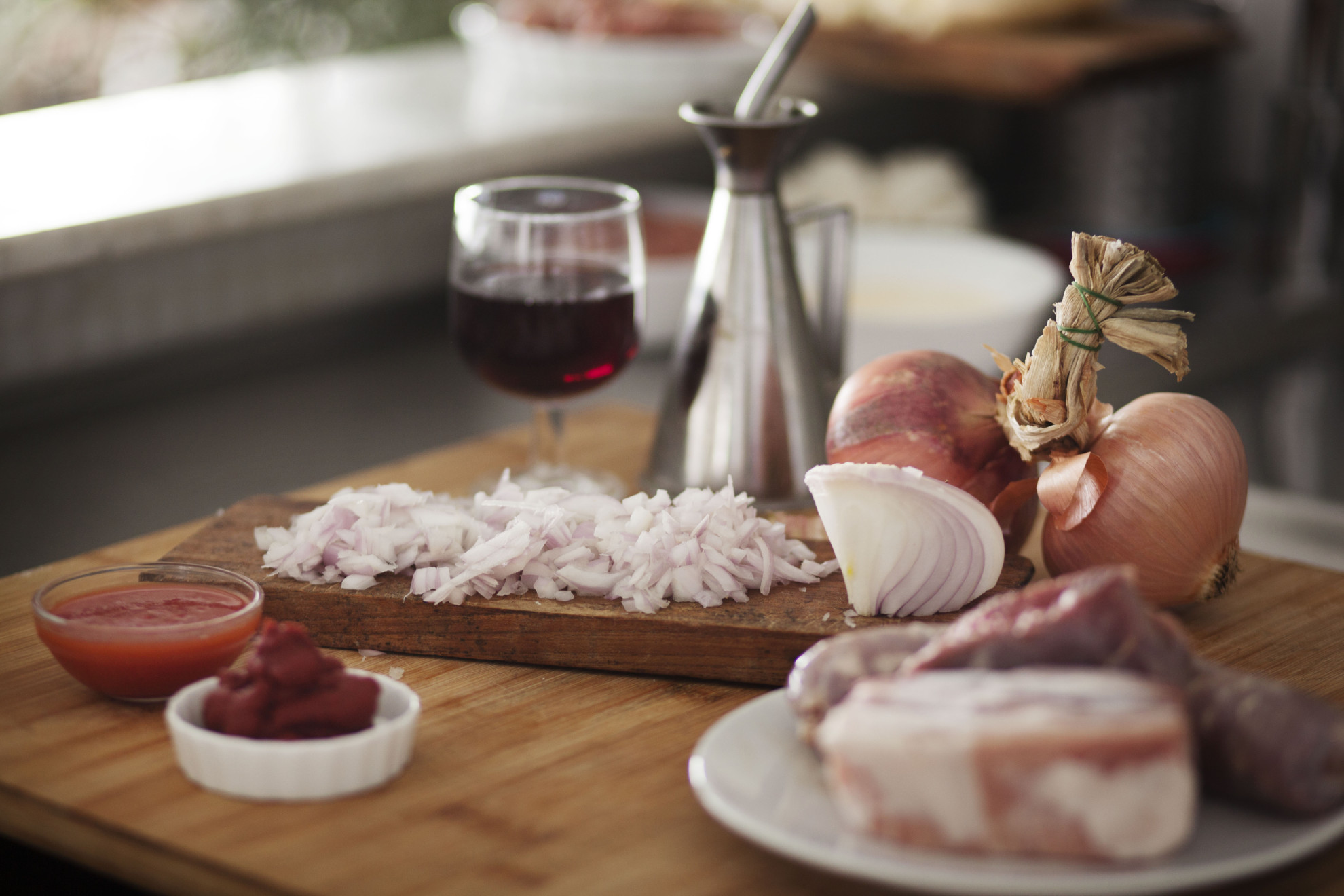
But a controversy can always arise because there is no single recipe for ragù and this might sound strange to those who have always identified this dish with Neapolitanism in the kitchen. Yet it is so: just remember the famous scene of the butcher in “Saturday, Sunday and Monday” with Sophia Loren, where it almost comes to blows to decide which are the best pieces of meat to cook in a pot, over low heat.
Someone prefers beef; someone else loves the specific piece of beef between the neck and the brisket, cooked like a roll; someone else, on the other hand, prefers the mixture of beef and pork and even sausage. The question of ingredients would need a separate article.
The onion must be finely chopped | Ph. Machi di Pace
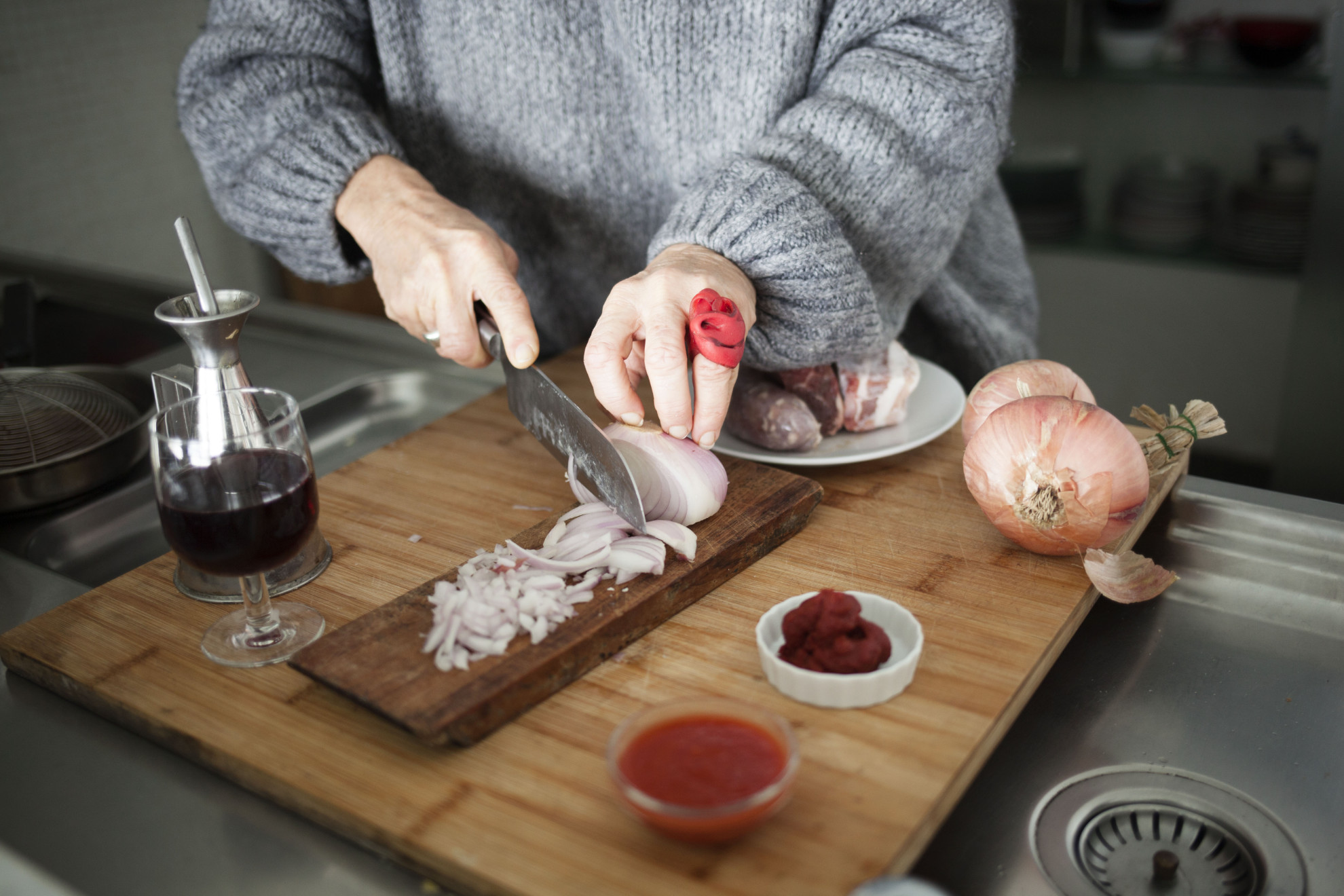
A little while ago we were talking about cooking. The times are long and dilated. «The ragù is not prepared: it is obtained», said the writer Giuseppe Marotta. As if it were a qualification, a much desired degree. Five or six hours is the minimum time for the sauce to be defined as ragù and not simply meat with tomato, to paraphrase Eduardo De Filippo again.
“Mò ce avèssem' appiccecà? Tu che dice? Chest'è rraù? E io m'a 'o mmagno pè m' 'o mangià... M' 'a faje dicere na parola? Chesta è carne c' 'a pummarola”From the poetry “‘O rraù” of Eduardo De Filippo
Tradition has it that the ragù should be cooked slowly, over low heat, all night long, until it reaches the desired consistency and the “dark rosewood” color, as our chef Alessandra Calvo reminds us while reading “Si cucine cumme vog'i'” by Isabella Quarantotti (De Filippo's wife), which identifies a perfectly successful ragù.
The bottom of the pot with oil, meat and onions | Ph. Machi di Pace
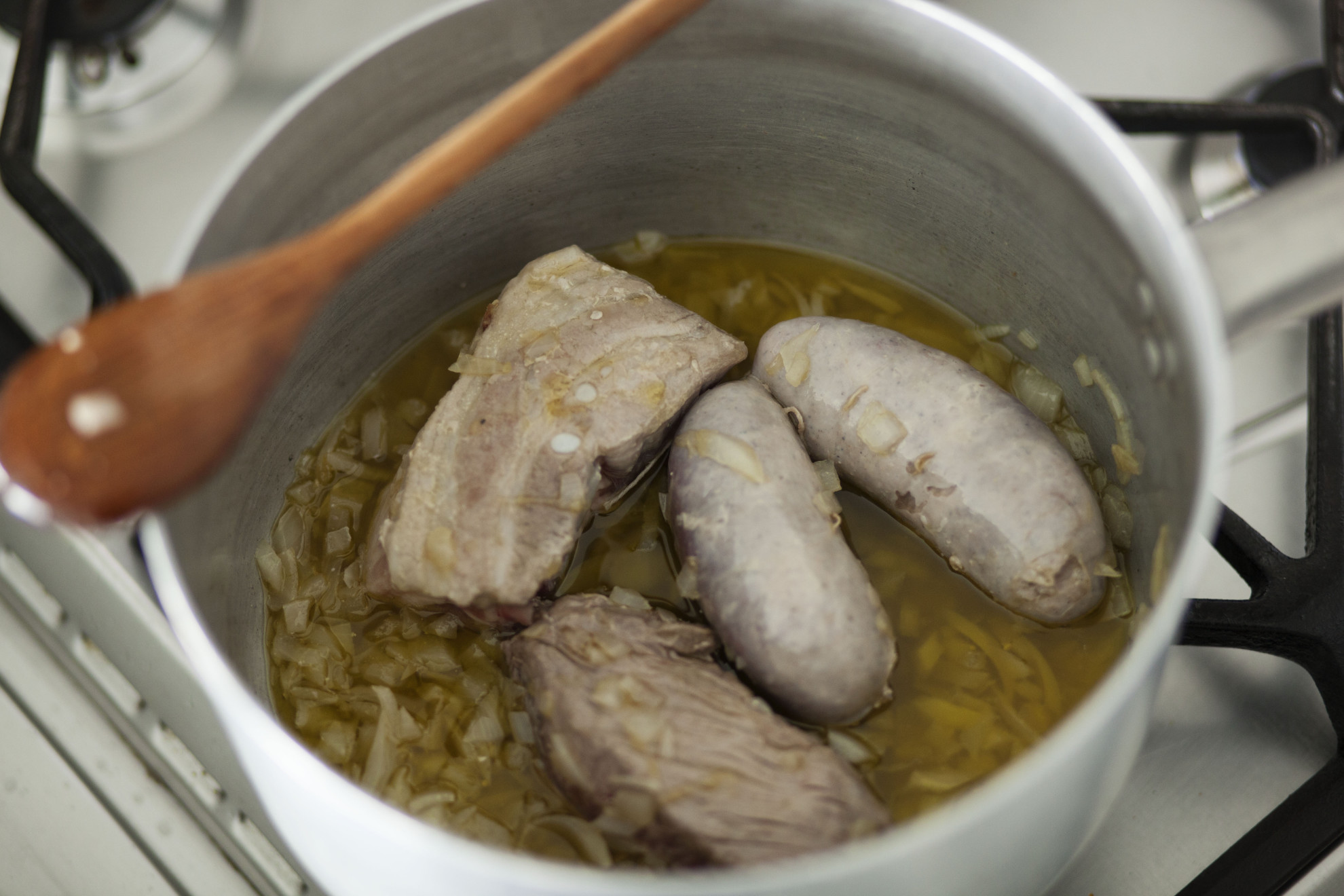
Let's go back to the word peppiare, which already in its pronunciation reveals an onomatopoeic essence. «Peppiare is that phase [...] when from the bottom of the pot where the meat and tomato sauce is cooking, air bubbles emerge repeatedly on the surface which, at the height of tension, break producing a sound similar to that it creates whoever takes a puff of smoke from the pipe, writes Raffaele Bracale, Neapolitan writer and gastronome. «The Tuscan translates in a rather imprecise and superficial way: simmer».
The ragù while it is cooking | Ph. Machi di Pace

The secret for the sauce begins to peppiare, Bracale always writes, is not to completely cover with the lid the pot where the sauce is cooking, but to keep it a little open with a wooden spoon, in order to let the necessary air pass, so that it does not start boiling. When the sauce creates bubbles without boiling, it means that it is peppiando.
Neapolitan lasagna | Ph. Enrico Nocera

Over the last few decades, especially in the second post-war period, ragù has become the symbolic dish of Neapolitan Sunday: taste, opulence, satisfaction, combined with a substantially low cost, have made this recipe the symbol of poor houses and alleys.
Yet it is one of the youngest preparations among those in the historic Neapolitan recipe book, compared to the Genovese, for example, which is a sauce based on meat and onions or other sauces that were not prepared with tomato (which in Naples was only common during the 19th century).
Ziti with ragù | Ph. Machi di Pace

Yet, going back to the discourse of memory, the smell of meat mixed with that of tomato ignites almost ancestral memories: the satisfied expression painted on the face, every time we took the lid off the pot for a moment. To observe hypnotized that peppiare that reminds us how cooking is sweetness of memory and harmony of the senses.

